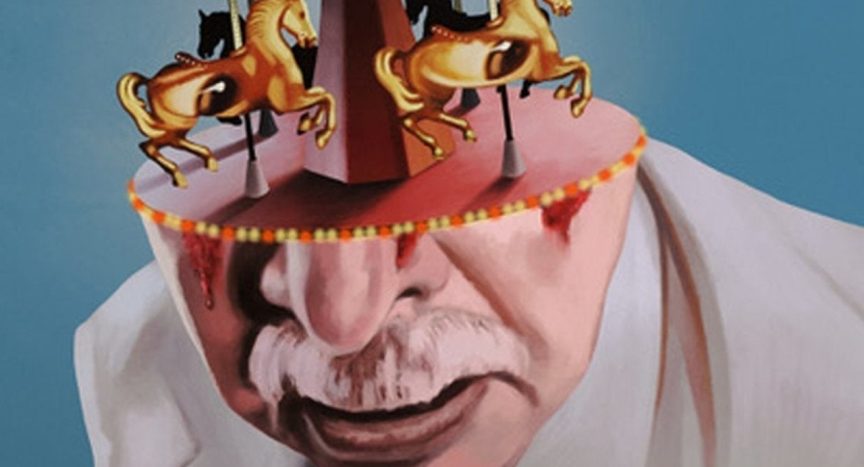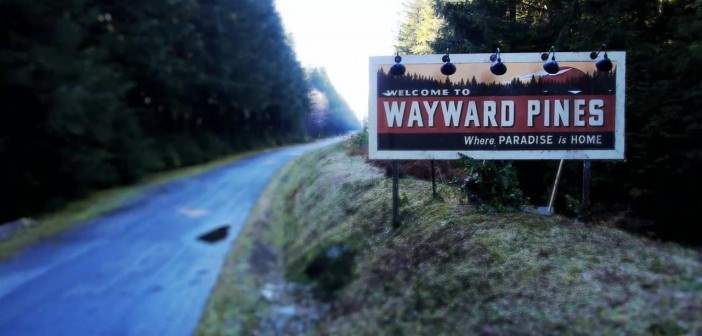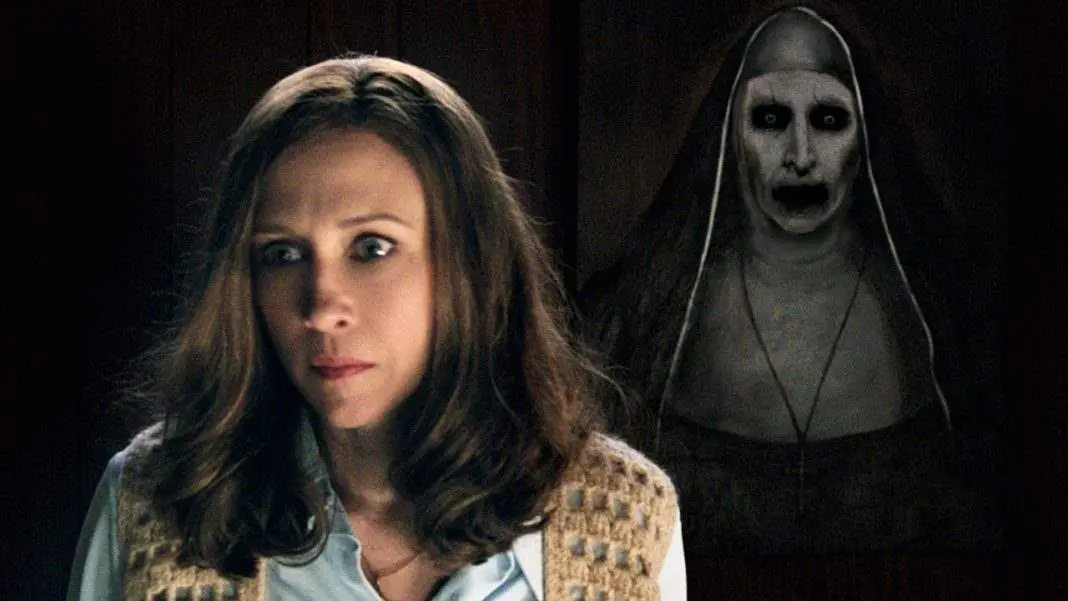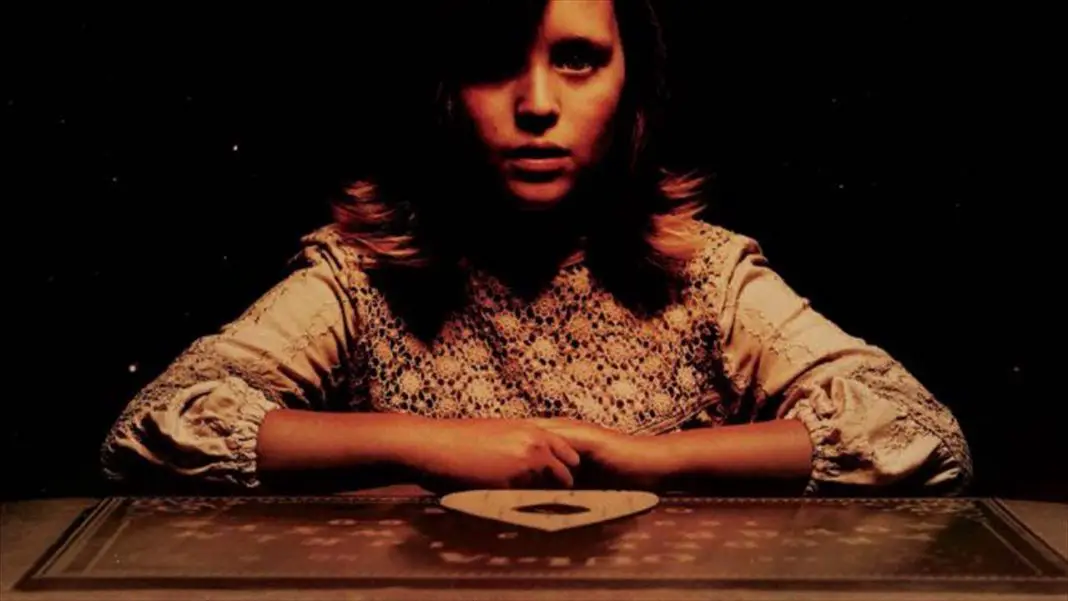Certainly, the fact that one of the greatest horror directors of all time had a genre film that was all-but-forgotten for nearly half a century reemerge is more than appetizing. And that the film was rediscovered at all — and given such a glorious digital release from RLJE Films — is nothing short of miraculous. That we can even watch The Amusement Park today is a testament to all of the hard work and effort so many film preservationists put into their craft. And they should definitely be commended for it.
Historically, there is no doubt that The Amusement Park is a significant finding. It’s Romero post-Night of the Living Dead and pre-Martin, filmed at a time when the venerable director was just starting to find his footing as a genre filmmaker. Like Season of the Witch and The Crazies, I suppose you could consider The Amusement Park as something of a soft experimental horror film — a flick too low-budget for the arthouse set, yet too avant-garde for exploitation and creature feature aficionados.
Objectively, however, it’s hard to recommend The Amusement Park as a standalone movie. At barely 50-minutes long and book-ended by lengthy soliloquies from by leading actor Lincoln Maazel, The Amusement Park is really more of an extended short than a proper narrative. Really, the entire concept seems like it would’ve worked better as an episode of an anthology program like The Night Gallery or The Twilight Zone.
Why One of George Romero’s Best Pictures isn’t Even a Zombie Film
Then again, the film wasn’t really meant to be a “film,” in the traditional sense, at all. Indeed, the movie is hardly anything more than a long-form advertisement for the Lutheran Service Society of Western Pennsylvania and a few other Pittsburgh-area nonprofits, who apparently wanted someone to cook them up a pseudo-educational picture about the ills of age discrimination.c
So what we have, essentially, is the incredible scenario of a legendary horror director attempting to make a profound social message film while being bankrolled by stakeholders more or less expecting hardly anything more than religious propaganda.
The end result may not be good, but it’s not uninteresting. Using the amusement park motif and a cast largely comprised of non-actors, Romero spins a Serling-esque yarn about an elderly man — who may or may not be in the throes of dementia — having to navigate his way through a crowded public environment. This, while Romero warps reality and implements a couple of “fantasy” sequences where Maazel encounters the all-too-real nightmares of ageism, substandard health care, and general apathy from the public.
And that’s a mixed bag, unfortunately. Some of those sequences, such as the one where a newscaster interviews a slum lord who profits off the misery of the elderly, are very effective. Others — such as a scene where our leading man tries to befriend a young girl — are substantially less so.
Did You Know? Wicked Horror TV Has Classic and Independent Horror Films Available to Stream for Free!
You certainly feel the pain of the main character, who does a tremendous job of demonstrating the beguiling effects of senility. The most powerful scene in the movie occurs when Maazel starts weeping after a disinterested mother takes a copy of The Three Little Pigs away from him. Without giving us any exposition, it’s a moment that just resonates with you. Sadly, truly heartfelt and riveting scenes like that are few and far between in The Amusement Park, which is clearly a movie hampered by a microscopic budget and what had to be an incredibly restrictive filming schedule.
Perhaps the saddest thing about The Amusement Park is that it shows that, had he wanted to go that route, Romero easily could’ve given us a real, full-fledged horror movie about aging — one that wasn’t hampered by the rule sets imposed by the investors.
As-is, though, The Amusement Park is still quite interesting and an obvious must-watch for any Romero fan — even if you likely will not enjoy the totality of the production.
RLJE, however, has to be applauded for all of the material they crammed into this special edition Blu-Ray release.
In addition to the lovely high definition transfer of the film itself, the package comes loaded with three mini-documentaries about the picture’s legacy/rediscovery, a full audio commentary track from Michael Gornick, an extensive panel interview, a photo gallery and even the full script for the movie.
Ultimately, the bountiful special features are what make The Amusement Park a Blu-Ray worth picking up. The mini-docs detailing the making of the production and its revival 40-years later are, in my opinion, more entertaining and interesting than the film itself. There is a lot of content to trudge through, and if you’re a person that’s fascinated by the production and distribution process of movies, you might want to add this one to your shopping list.
If you’re expecting an all-time horror classic from The Amusement Park, you might be setting yourself up for failure. But with so much extra material, it’s hard for me to imagine any horror fan — and especially any Romero admirer — being disappointed by the overall package offered by this top-deck Blu-Ray release.
Wicked Rating: 7 out of 10
Follow us on social media! Twitter, Facebook, and Instagram.





